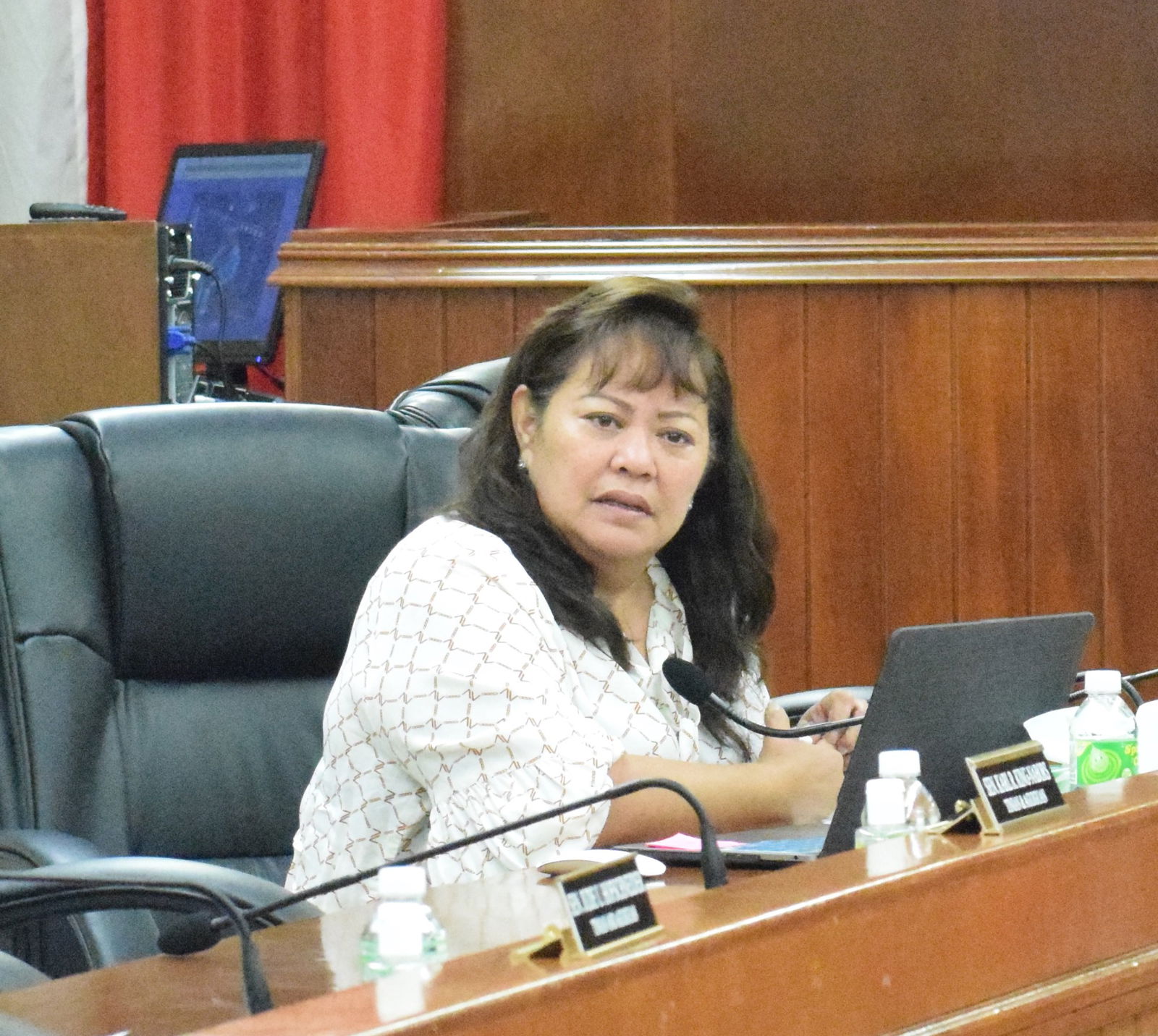
Celina R. Babauta
SENATOR Celina R. Babauta is questioning the $238,706 contract awarded to Texas-based Low Kountry Ink Mobile to provide meals to U.S. troops participating in Resolute Force Pacific or REFORPAC 2025.
In a letter to Rear Adm. Joshua Laskey, commander of Joint Task Force Micronesia, the senator said she deeply values the partnership between the U.S. military and the Commonwealth and remains committed to supporting the Department of Defense’s Pacific Deterrence Initiative. However, she noted that this pledge of commitment and expression of gratitude “comes with an expectation of mutual respect and inclusion, especially in matters of economic opportunity.”
Although Low Kountry Ink Mobile subcontracted a local catering company, Chow Time, Babauta expressed concern that reputable and fully capable locally owned food service providers in the CNMI were “passed over in favor of a mainland intermediary with no established catering presence in our region.”
The senator finds it “extremely troubling” that Low Kountry Ink Mobile is described in federal procurement systems as an “establishment primarily engaged in providing single event-based food services,” while it actively markets itself on its own website as a provider of notarial services, describing its business as “experienced, professional, and friendly notaries public, serving Southeast Texas.”
This, Babauta said, raises valid concerns regarding misrepresentation of business classification, the integrity of the contracting process, and the due diligence performed prior to award. If the company does not primarily operate as a food services provider and instead operates as a mobile notary business, the senator said, “it is unclear how it qualified for and secured a $238,706 military contract to feed personnel deployed to the CNMI.” This contradiction, she added, raises serious questions about the criteria used during the vetting and award process.
She further noted that this practice not only diverts vital federal dollars away from the CNMI’s fragile local economy but also deprives the Commonwealth government of tax revenues it could have otherwise collected if the contract had been awarded directly to a registered local vendor.
“At a time when our government continues to recover from fiscal strain and when our small businesses fight to survive, this kind of procurement decision is both economically damaging and deeply disappointing,” Babauta said.
She asked Laskey the following questions:
– If a local vendor ultimately provided the meals, why was that vendor — or other CNMI vendors — not engaged directly?
– Why were CNMI businesses, many of which are still recovering from economic hardship, excluded from direct opportunity and instead forced into subordinate subcontractor roles?
– What was the process through which this contract was solicited and awarded?
– What steps will be taken by Pacific Air Forces and Joint Region Marianas or Joint Task Force Micronesia to ensure CNMI vendors are prioritized in future exercises and operations? Were CNMI-based businesses notified or provided a fair opportunity to compete for this contract?
– At what stage, if any, were CNMI government or procurement officials consulted during the planning of REFORPAC-related services?
– What safeguards are in place to ensure companies meet appropriate qualifications for the services they are contracted to perform?
Babauta emphasized that the economic impact of such contracts is significant for the CNMI’s small local community. She said the decision to route nearly a quarter-million dollars off-island — when the services were ultimately fulfilled locally — reflects an inefficient and inequitable use of taxpayer funds, and a missed opportunity to support the very community hosting these exercises.
“This discrepancy also calls into question the extent of the federal government’s oversight, procurement compliance, and the mechanisms in place to prevent such apparent mismatches,” Babauta said. “It is especially troubling given that a capable, locally available food services provider was ultimately relied upon to fulfill the contract anyway — but only through an indirect and inefficient subcontracting arrangement that denied them the full benefit of the award.”
Babauta thanked Laskey in advance for an expeditious response and said she welcomes the opportunity to engage in direct discussions to help chart a more inclusive path forward.










